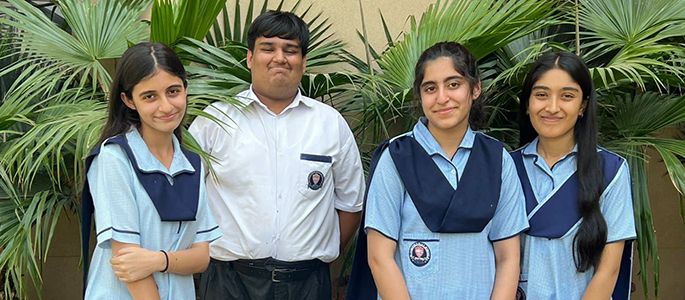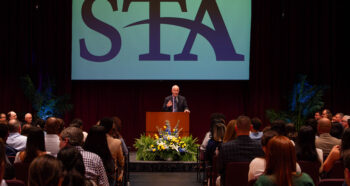By Christine Ozden, Global Director of Climate Education at Cambridge
“At times we have to look at our past to have a successful future”.
This was one of the opening remarks in the submission to the Cambridge Upper Secondary Science Competition from a team of four young scientists from Bloomfield School in Pakistan. Their investigation as to how we can reduce carbon emissions by rethinking our construction practices went on to win the inaugural Sustainability Award in the Cambridge Upper Secondary Science Competition.
I’m delighted at the introduction of this new award to the Cambridge Upper Secondary Science Competition. The aim is to recognise the significant role that scientific knowledge, ways of thinking, and skills can play in helping us understand and tackle the climate crisis; and also to acknowledge the quantity and sheer quality of submissions from Cambridge schools that connect to the environment and broader sustainability themes.
The competition asks students to consider sustainability in their planning and investigate a topic of practical relevance to their school or community – helping students connect science to solving real-world problems. This award celebrates teams that demonstrate an outstanding approach to environmental sustainability and responsible practices throughout their project.
The work that Cambridge is doing in climate education aims to help learners understand and address the impacts of the climate crisis, empowering them with the knowledge, skills, values, and attitudes needed to act as agents of change. Within this, it is important that we forge and reinforce links between the classroom and the community. The key skills that are sought after in the competition, such as creative thinking and problem-solving, are fundamental to quality climate education, with learners working with their scientific knowledge to tackle current issues and those that will arise in the future.
At Cambridge, we have started to review our curriculum and assessments to ensure that learners have the opportunity to access current age and stage-appropriate knowledge and thinking on climate change and sustainability, as this connects to their area of study and where they live. In order to thrive in their future careers and communities, we want Cambridge learners to understand the implications of climate change, and to be confident to make choices for individual and collective action. We want them to understand the challenges associated with the climate crisis and the opportunities we have to deal with them.
The competition enables creative and collaborative responses to climate change, and such activities have a particular value in supporting learners as they communicate their feelings and consider appropriate actions. The investigations submitted through the competition also encourage learners to see that climate change is a global issue that benefits from local, regional, and national solutions and perspectives.
As well as building a passion for science and its real-world applications, I hope this enables our learners to feel optimistic and powerful as they understand their ability to be agents for change and part of the solution to the climate crisis.
Find out more about the winning team’s sustainability project
Want to take part in the next stage of the competition? Sign up here





